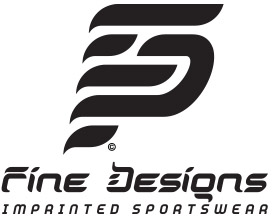Euro Trip Day 3: AZ Alkmaar — All You Have to Change is Everything

ZAANDAM, Netherlands — Two-time Dutch champions AZ Alkmaar are all about stories — you can see it at their brand new youth complex just north of Amsterdam.
When the youth players walk downstairs to their locker rooms, the walls are lined with famous players from the club’s past. A young midfielder must, therefore, walk by the portrait of Phillip Cocu before he can change into his gear for the day.
But the portraits are more than just famous players, they’re all success stories of AZ, stories that can be bestowed on young athletes in order to inspire them.
“Players understand stories better,” Bert Heuvingh, a professional sport developer at AZ, told NorCal’s group of roughly 25 Directors of Coaching. “It isn’t about the picture, it’s about the story behind the picture.”
After the players change, they must walk out of the locker rooms past a curve on the wall that depicts the celebrations of the Dutch title in 2008-09 and the KNVB Cup in 2012-13. In the tunnel that leads to the showcase field, there are images of teammates celebrating together, placed there to promote a sense of team unity.
It’s all deliberate for a club that for many years languished near the middle of the table, but are currently in second place, two points ahead of their more famous neighbors in Ajax.
And it’s with these stories, and a sort of a Dutch counterculture philosophy, that the club hopes to be one of the top-25 in the world by 2020 — good enough to regularly play in the Champions League knockout stages on a regular basis.
“We are not a Dutch club because we are doing a lot of things differently than what Holland is doing,” said Marijn Beuker the Head of Performance and Development “The top of the Netherlands and Europe is distinguished by financial resources. The larger their budget, the better players they can buy and the greater the chance on success.”
“We cannot compete on the basis of money.”
Running with an annual budget of just €25 million — for context, FC Barcelona paid a reported €105 million transfer fee for French wonderkid Ousmane Dembele — AZ Alkmaar are forced to adapt and compete using different ideas in order to remain competitive.

All you have to change is everything. AZ Alkmaar knows this because that’s what they did, zigging when the rest of the Netherlands zagged.
If their philosophy sounds similar to the principles enacted by the Oakland A’s — famously outlined in the book and film Moneyball — that’s by design. In fact, A’s General Manager Billy Beane is an advisor to the club.
AZ know that they will never have the funds to buy a player for €10 million, but they know that they can create a player that’s worth €10 million by using a variety of different aspects to get ahead of the competition.
Heuvingh is part of that, hired to prevent problems before they happen rather than fix them after they do. He notes that all the top clubs in the area have multiple physical therapists who help athletes rehab, but what if they learn as a youth better nutrition and sleep habits so that the injuries happen less frequently in the first place?
AZ and Heuvingh consider these aspects as well as others like sleep, media training, lessons on how to deal with agents, the evolving use of computer games to stimulate cognition, and using virtual reality to help better teach game states and decision making.
Heuvingh can be found at all times roaming the complex, instilling the principles found in Carol Dweck’s Growth Mindset, a book that explains the idea that a “growth mindset,” where people understand that it’s possible to learn and get better is far superior to the “fixed mindset,” where people think that success lies in inherent talent.
For example, Heuvingh noted that some players who were average at the U16 level eventually developed into first team players at the club because they were constantly looking to improve, while some with more talent faded and never made it because they said their talent was “God-given.”
“One of my initial thoughts was that there was a heavy American influence in their approach,” said Turlock Tornadoes Director of Coaching and Cal State Stanislaus Head Coach Gabe Bolton. “They were using concepts from Carol Dweck. You have them using the Golden Circle, which is from Simon Sinek, an American performance coach. It was interesting how they were incorporating concepts from other cultures into their approach for their personal development.”
“It was interesting to see how they’re integrating those aspects in their overall plan to develop players,” Bolton added. Having (Heuvingh), and they only have one of him, how can he maximize his impact on 150 players using these concepts, that was for me, the most valuable part that we can learn because we’re all coming from clubs that are under-resourced.”
The need for a “growth mindset” was an idea shared by U15 coach Robert Franssen, who pointed to Freddy Adu as an example of why the most talented player doesn’t always pan out.
Franssen was asked when the right time to move a player up age groups was and responded that they liked to be very cautious when doing so.
“If a player is better than his peers and moves up too fast and other players make up ground on him, the player cannot accept that he is not as good anymore,” Franssen said. “If that happens, it’s pretty much over.”
At a club where 53 percent of the first team minutes come from homegrown players (a top-15 rate in the world), Franssen spends most of his time looking to get the most out of those players who are average now, but may turn into €10 million players later in their careers.
But that focus turns to winning on Saturdays, as the U15 squad AZ believes that learning to win is a skill and whatever squad is playing at that time — even if it doesn’t include the best players — should attempt to come out with a victory.
“On Saturday I want to win, period. At the end of the match, AZ has to win,” Franssen said. “Sometimes we think a bit about developing and a bit about winning, but the guys over here also have to learn that it’s about winning.”
After the session wrapped up at AZ, the contingent headed to the bus to drive across the country back to the site of yesterday’s lessons: Arnhem.

The previous day, Vitesse Arnhem had given the Directors of Coaching a tactical preview of their Europa League contest against French side Nice with the expectation that each DOC would form a small group in order to analyze the game from a specific perspective.
On the docket for Thursday’s game was putting together a report on how Nice defended Vitesse in each of the four phases of the game as well as in transition, with the final product coming in a presentation designed to simulate as if our DOC’s were scouting Vitesse as their next opponents, with Dutch coaching legend Frans Hoek then providing feedback.

“I thought it was a great idea for us to get a little bit more insight into how to analyze a game because that’s something we don’t really do for the youth clubs,” said San Ramon FC’s Mani Salimpour. “I think it’s a great idea for the top clubs at our team to be able to send a team to record the opposition and be able to prepare for games in that way.”
“It opens our eyes on what to look for and having Frans give us the insight on how they look at it in their professional eyes, I think it would be able to help us help our players in their environment,” he added. “I think the trip has been amazing so far because we’ve had much more collaboration between the coaches who are here and the groups that have been formed. It’s going to help much more with what the objective of this coaching education trip is.”













